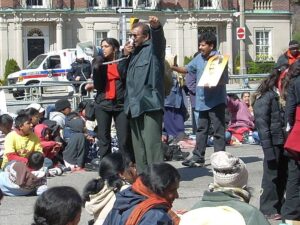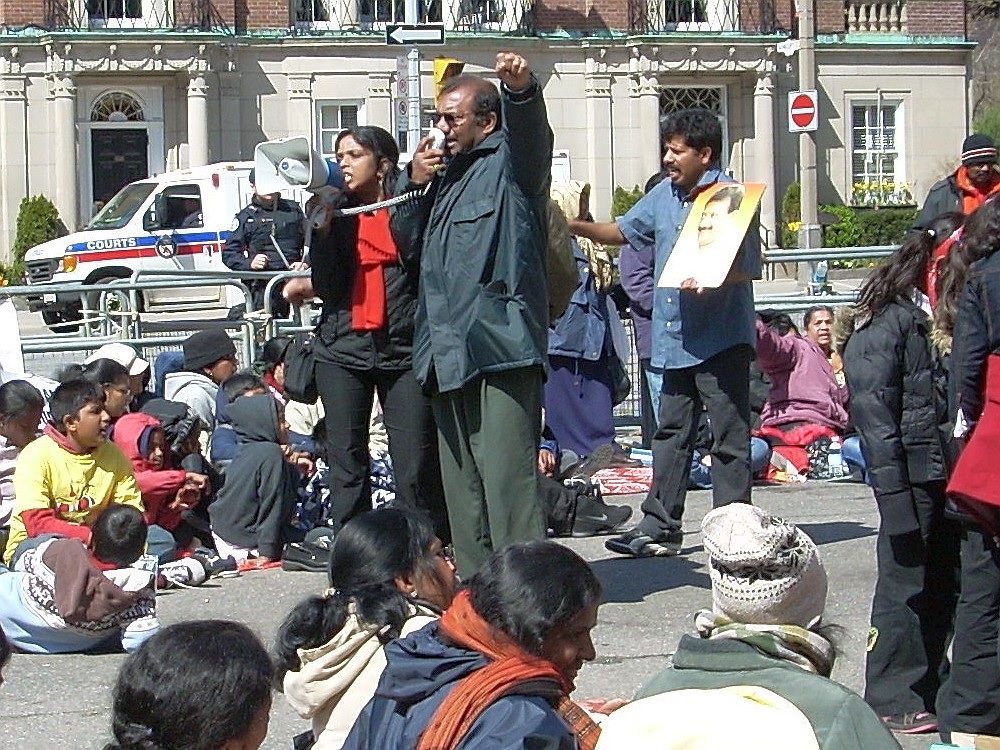As Sri Lanka approaches its next presidential election, the discussion about Tamil political participation is gaining momentum. There is a notable shift from the traditional Tamil approach towards considering the fielding of a common Tamil candidate. This strategy stems from past experiences and a desire to ensure Tamil interests are adequately represented. Here are some arguments rom the diaspora who spoke to lankaenews.com supporting this idea:
Historical Lessons and Unmet Promises
Karthigesu Murgan originaly from Jaffna and now liveing in Montreal, Canada points out that Tamil voters have traditionally supported moderate Sinhala candidates, such as Maithripala Sirisena in 2015, who later failed to fulfil promises to the Tamil community. This has led to a growing sense of disenchantment and it’s time to make apoint by having a candidate to represnt the aspirations of Tamil’s.

Jebanasan Candra Mohan who migrated from Mulithivu speaking from Pars said that many of the candidates favored by Tamils in previous elections, like Sarath Fonseka, turned against them after winning. This history of unmet promises has fuelled the desire for a common Tamil candidate who can directly represent and advocate for Tamil interests.
Empowerment and Visibility
Contesting the presidential election with a Tamil candidate would enhance the political visibility and bargaining power of the Tamil community argues Subash Rasanayagam a London based businessman from Marthagal in Jaffna .A candidate to resent the Tamil cause sends a message of political engagement and seriousness about Tamil issues argues Rasanayagam .
Sivaraja Sandeep who is actively engaged in Tamil political issues argus that the move will strengthen their position in post-election negotiations, ensuring their concerns are addressed more robustly by the eventual winner.
Civil Society Support
Active Civil Society

North-based Tamil civil society organizations are actively promoting the idea of a common Tamil candidate. Several groups have signed agreements to support this initiative, reflecting a strong grassroots demand for change.Sugunya Malathi who is digital media activist operating from London points out that Tamil Diaspora needs to actively encourage Tamil Presidential candidate.
A common candidate could unify various Tamil factions and civil society groups, creating a more coordinated and powerful voice in the national political arena, said Sugunya Malathi .
Potential for Electoral Influence
While Gotabaya Rajapaksa won in 2019 without minority votes, how ever the current scenario is different ,the presence of a common Tamil candidate could influence the overall electoral dynamics. Tamil votes can still be a decisive factor, especially in a closely contested election points out Nirmala Jesudhasan lecturer in Political Science at Metropliton University London .
She argues that encouraging Tamil participation in the election by fielding a candidate ensures that their voices are heard, potentially upsetting the election results in a manner that could favour Tamil interests.
Experimentation and Political Strategy.
Fielding a common Tamil candidate can be seen as an experimental strategy to gauge the political landscape and the community’s electoral strength.
Even if the candidate does not win, the process can help in building a robust political strategy for future elections and enhancing the Tamil community’s political organization said Kumar Krisnasamy.
Challenges and Counterarguments

The Ilankai Thamil Arasu Katchi (ITAK), a significant Tamil political party, has not supported the common candidate initiative. Their lack of participation could weaken the overall effort and diminish the impact of a common candidate argues Kumar Sndanam chairperson of Tamils for Peace based in Toranto Canada .
The idea of fielding a common Tamil candidate in the upcoming presidential election represents a significant shift from past strategies. It reflects a growing desire within the Tamil community for greater political representation and accountability. While challenges such as internal disunity and lack of charismatic leadership exist, the potential benefits of enhanced political power and visibility make a compelling case for this approach. How ever this strategy is not shared by the entire Tamil; community as their are many who argue for integration with a common Sri Lankan identity.







